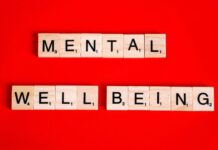Affiliate Disclaimer
Some links in this article are affiliate links. We may earn a small commission if you make a purchase through these links, at no extra cost to you. We only recommend products we find useful to our readersMaintaining independence and a high quality of life is essential to support mental acuity and cognitive function. Although there are natural changes to the brain as we age, lifestyle decisions can significantly slow down or speed up cognitive decline. Nutrition, exercise, mental stimulation, and social interaction significantly impact brain health.
You can increase cognitive resilience and possibly lower your risk of developing age-related disorders like dementia and cognitive decline by making healthy lifestyle modifications.
1. Sedentary Lifestyle

A lifestyle characterized by minimal physical activity, known as a sedentary lifestyle, poses significant risks to brain health. Lack of physical activity can result in a decrease in blood flow to the brain. Over time, this will hurt cognitive function. Reduction in blood flow restricts delivery of essential oxygen and nutrients to brain cells. This contributes to cognitive decline and memory impairment.
However, consistent physical activity has significant positive effects on brain function. Engaging in activities like walking, swimming, or strength training improves blood circulation, stimulates the growth of the brain cells, and promotes the release of chemicals that support cognitive abilities such as memory and learning. Physical activity also lowers the risk of stroke.
To mitigate the adverse effects of sedentary lifestyle, its recommended that individuals engage in around 150 minutes of aerobic activity per week at a moderate intensity.
2. Poor Diet

There is a significant correlation between a poor diet and cognitive function.
Enjoy a well-balanced diet If you want to keep your brain functioning at its best. Foods abundant in antioxidants, omega-3 fatty acids, and vitamins act as a protective barrier against brain cell damage and support cognitive processes. Leafy greens such as spinach and kale, berries such as blueberries and strawberries, nuts such as walnuts and almonds, and fatty fish such as salmon and trout are particularly advantageous for brain health.
Next Read: 10 Foods High in Unsaturated Fats That One Needs to Stay Wary Of
3. Chronic Stress

The effects of chronic stress on mental sharpness and cognitive function are significant. Cortisol is a hormone released by the body in response to prolonged stress. This hormone can induce disruptions in the balance of neurotransmitters and hinder communication between brain cells. An increase in cortisol levels over time can cause the hippocampus, a region of the brain that plays a vital role in learning and memory, to shrink.
Implementing stress management strategies is essential to significantly reduce the adverse effects of chronic stress on the brain. Mindfulness meditation, deep breathing exercises, and regular relaxation routines can lower cortisol levels and improve overall brain health. Aside from that, engaging in activities that bring joy and relaxation, socializing with friends and loved ones, and engaging in hobbies, are all activities that help alleviate stress and support mental clarity.
4. Lack of Sleep

Lack of sleep negatively affects mental clarity and cognitive function. The brain processes information from the day and consolidates memories while you sleep. Sleep deprivation disturbs this process, affecting memory consolidation and general cognitive function.
Prolonged sleep deprivation has been associated with issues with focus, problem-solving, and decision-making.
Adhering to a regular sleep schedule and creating a peaceful sleep environment promotes brain health. Maintaining regular sleep patterns improves quality of sleep and supports brain function by assisting in the regulation of the body’s internal clock.
Maintaining a cool bedroom, limiting screen time before bed to minimize blue light exposure, and creating a relaxing bedtime routine that tells the body it’s time to relax are all essential steps to create a sleep-friendly environment.
Read more: 12 Ways to Shut Off Your Brain Before Bedtime For Peaceful Sleep
HS Related Articles about Sleep:
- What Happens If You Sleep 6 Hours A Day? Know The Side Effects!
- What Happens When You Don’t Sleep For Days?
5. Social Isolation

Social isolation, frequently accompanied by feelings of loneliness, adversely affects mental clarity and brain health. A lack of meaningful connections and social interactions increases the risk of cognitive decline and diseases like dementia. Research indicates that social disconnection may result in cognitive deficits akin to those brought on by sedentary lifestyles or inadequate dietary habits.
Sustaining mental health and cognitive function requires maintaining strong social ties. Frequent social interactions foster emotional resilience, brain stimulation, and opportunities for cognitive engagement through activities and conversations. In addition to fostering new relationships, social activities like joining clubs, volunteering in the community, or participating in group hobbies improve cognitive function and support overall brain health.
6. Smoking

A significant impact on brain function and an increase in the risk of cognitive decline are both associated with smoking. Tobacco smoke contains several harmful chemicals that cause damage to brain cells and reduce the amount of oxygen that is delivered to the brain.
Putting an end to smoking has significant positive effects on brain health. According to research, quitting smoking will result in improvements in cognitive function and a reduced risk of cognitive decline when compared to people who continue to smoke.
You can quit smoking at any time. There are resources and methods available to you that will help manage the symptoms of nicotine withdrawal. You can increase your likelihood of successfully quitting smoking through the use of practical tools such as counseling, support groups, and nicotine replacement therapies (such as patches or gum).
Quitting smoking and avoiding any kind of exposure to tobacco smoke are two of the most effective ways for individuals to protect their brain health, improve their cognitive abilities, and enhance their quality of life.
7. Excessive Alcohol Consumption

Excessive alcohol poses significant risks to the health of the brain and the cognitive function of the brain.Brain damage caused by alcohol consumption can manifest in a variety of ways, including memory loss, difficulty concentrating, and impaired judgment.
Consuming alcohol in moderation is essential to reduce the adverse effects that it has on the brain. Either cutting back on alcohol consumption or completely abstaining from it will result in improvements in cognitive function and reduction in risk of long-term damage to the brain. A “drink” is around 12 ounces of beer, around 5 ounces of wine, or 1.5 ounces of the distilled spirits. Guidelines recommend that alcohol consumption be limited to moderate levels. Women being allowed up to one drink per day and men being allowed up to two drinks per day.
Alternatives to alcoholic beverages, such as mocktails or non-alcoholic versions of your favorite drinks, can provide options that are enjoyable and promote brain health. You can protect your cognitive function and overall well-being from the adverse effects of excessive alcohol consumption by adopting responsible drinking habits and considering alternatives to alcohol consumption.
Also, read: What Are The Effects Of Alcohol On Your Skin? 7 Alarming Side Effects
Conclusion
Maintaining cognitive health and encouraging a healthy aging process relies heavily on abstaining from the harmful behaviors covered in this article. Over time, poor lifestyle choices, including smoking, excessive alcohol consumption, chronic stress, poor diet, lack of sleep, social isolation, and sedentary behavior, can all impede brain function and cause cognitive decline. People can optimize their cognitive function and support healthy aging with regular physical activity, a balanced diet rich in nutrients that boost the brain, effective stress management techniques, adequate sleep, social interactions, and by avoiding smoking and excessive alcohol.
In this Article


















